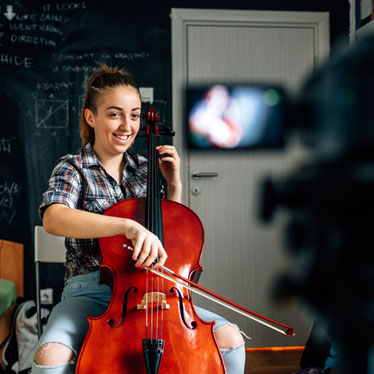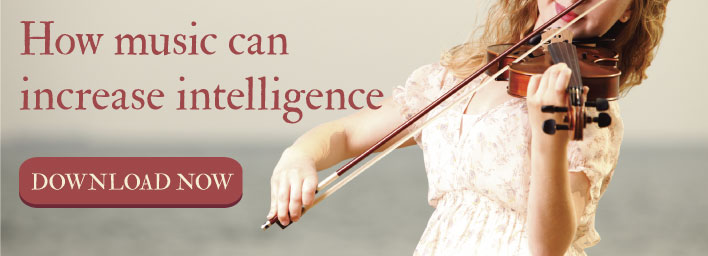How To Make A Reel of Your Performances Without Violating Copyright Law

Putting together a demo reel is a must-do for any music student. You have so much to focus on and it seems your actual performance is just one piece of it. There’s everything from the acoustics and technical quality of the recording to what you’re wearing. You also need to think about whether you are legally recording the song you’re performing. That’s right. You have copyright laws to consider as well.
A copyright is the exclusive legal right one has to publish, perform, or distribute artistic material. As a practical matter, this means that putting together a demo reel can raise a number of copyright questions. As you step through all these questions, the most critical question you have to answer is how you want to use your specific demo reel.
In some cases – but not always – copyright law carves out an exemption for noncommercial and/or private use. When you submit your demo reel as part of a pre-screen application to a music school or conservatory, that may be considered noncommercial or private activity. Thus, that use of your demo reel may not have the same copyright implications as other uses. For example, submitting a demo reel as part of an application to a competition or for a job would be commercial activity – so no exemption here. It doesn’t matter if you wouldn’t be getting paid, the demo reel is still being used in these cases to promote your personal brand, which is considered commercial activity.
It’s the distribution that mucks things up
When you’re practicing on your own, you don’t owe anyone any copyright fees. You don’t owe them when you play at family functions. Your teacher has probably (hopefully) taken care of any required composer and performance copyright fees when you perform at a recital or school concert. Your parents can even record these performances and set one as their personal ring tone.
However, the moment you want to distribute any of those recordings – now you have copyright issues to consider.
Now, if you send a file of your performance to a friend, no big deal. If you want to post that performance publicly, say on Facebook, YouTube, or your own blog – very big deal. But that’s not even the big deal we’re talking about here, which raises its own (different) copyright issues.
Even sending a CD or DVD to a handful of organizations most likely triggers distribution copyright fees.
Here’s the good news…
If the composition you’re performing isn’t under copyright, then you have no worries. As a practical matter, nearly ever composition published prior to 1923 is in the public domain. But not all (for example, Stravinksy’s works are no longer in the public domain). Also keep in mind everything we’re discussing here is based on U.S. copyright law. Each country has its own copyright law which may see things differently.
If you are performing a work that’s not in the public domain, then you do have to think about copyright when distributing your demo reel.
But the second bit of good news is that the Internet has made this really easy for you. There are numerous online sites that manage and coordinate payment of copyright fees. You can check out Harry Fox and Easy Song Licensing. They can arrange the license in a matter of days and it’s less expensive than you’d think, especially if you’re only distributing a few copies.
Regarding demo reel submission to music schools – many are using online application management sites, like Acceptd and DecisionDesk, that let you upload your demo reel digital file directly to the site. Because these are secure, access-limited sites for education purposes, they may be exempt from distribution copyright fees.
The last few wrinkles to consider
The names of the copyright license needed to distribute a CD or a DVD are different, so make sure you get the right one. A mechanical license covers CDs and a synchronization license covers DVDs. The distinction is whether you’re distributing a sound recording only, or whether there’s a visual recording.
Also, the distribution copyright applies to every song under copyright. Meaning: If you’re performing more than one work that’s under copyright on your demo reel, you need the distribution rights for each separate song. Again, the online copyright management sites can help you coordinate this.
Last, there is another copyright that attaches to a performance. Your own performance. However, if your buddy accompanied you on piano or you’re using a recording of a school concert – all those people own the copyright to their performances as well. Legally, you’re not free to record and distribute their performances without their permission. If you’re very concerned, you can probably get a waiver from your buddy.
Of course, this all begs the question: How likely is it that someone will come after you for violating a distribution copyright on your demo reel. It’s impossible to say. The higher profile you become, the greater the risk.
You can always ask for advice from a lawyer or perhaps a music professional who’s been through it all. If you really want to side step this whole issue, just make sure your demo reel only contains works in the public domain.


